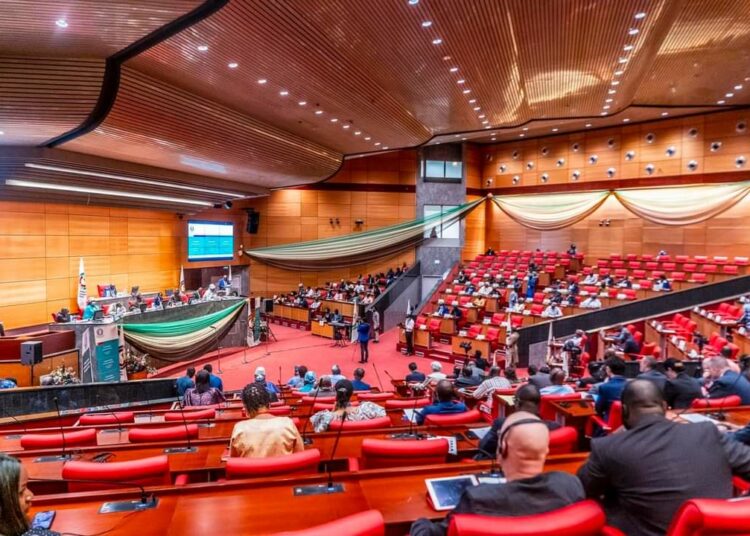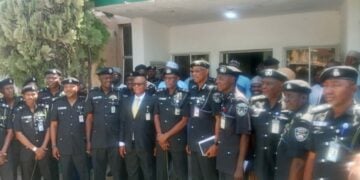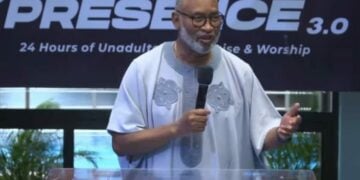The Parliament of the Economic Community of West African States (ECOWAS Parliament) is optimistic that its collaboration with the European Parliament will strengthen its legislative capacity, enhance proper representation, and boost engagement with other regional organisations to address pressing issues within West Africa.
The West African Parliament, established on November 16, 2000, in the Republic of Mali, will commence activities to mark its 25th anniversary from November to early December 2025. The Parliament has, over the last 25 years, worked to strengthen representative democracy, promote regional peace, security, and stability, and foster economic integration among member states.
The ECOWAS Parliament has also become a veritable forum for dialogue, significantly contributing to the implementation of community objectives and raising awareness among citizens about regional integration issues. Over the years, the regional legislature has become the fulcrum for promoting and defending human rights, transparency, and good governance, as well as advising on matters related to community policies, including communication, energy, and public health.
The treaty establishing the ECOWAS Parliament was signed in Abuja on August 6, 1994, and was inaugurated in 2000. It acknowledges that it serves as a forum for consultation, dialogue, and consensus among the representatives of the people of West Africa, aiming to achieve economic integration and cooperation, and is an assembly of the ECOWAS community.
According to the ECOWAS Treaty: “There shall be an establishment of ECOWAS Community Parliament, election of the members, its composition, functions, powers and organisation, all these shall be defined in the protocol’’(Article 13)[2].
Speaker of the Sixth Legislature, Hadja Memounatou Ibrahima, has demonstrated enormous ability, resourcefulness, and openness to embracing changes, initiating reforms that will put the regional legislature on the proper pedestal to gain from the European Parliament.
It was therefore on this premise that the ECOWAS Parliaments were emboldened to strengthen ties with the European Parliament. Recently, a delegation from the European Parliament’s Committee on Foreign Affairs (AFET) visited Nigeria from October 26 to 28, 2025. While in Nigeria, the EU MEPs engaged with key democracy stakeholders and expanded their collaboration with the Nigerian Parliament and the ECOWAS Parliament.
In a conference with the media on Thursday, Mr David McAllister, Member of the European Parliament and Chair of the Committee on Foreign Affairs, said the ECOWAS Parliament and the European Union (EU) maintain a strong and active partnership, with recent collaborations in 2024 and 2025 focusing on peace and security, trade and economic development, and institutional capacity building.
Building capacity for direct election to the ECOWAS Parliament may be the most critical area in which the West African legislature can learn from the EU Parliament.
According to McAllister, “We are the only multinational parliament in the world that directly elects its members, while the ECOWAS Parliament is composed of National Parliamentarians who are delegated to the ECOWAS Parliament.
“The EU parliament has a law-making function. We also have a role in the EU budget. Hence, our competencies are much stronger than those of ECOWAS Parliament, and we understand how the ECOWAS Parliament is trying to help bring accountability in regional affairs.”
The ECOWAS Parliament has often reaffirmed its commitment to embrace new ideas that will bring progress to the region and in collaboration with the ECOWAS Commission, The ECOWAS Community Court of Justice, it has partnered with the EU in several ways to address issues which include Peace and Security, where the EU provides significant support to ECOWAS in addressing regional security threats, including terrorism, communal conflicts, and organized crime.
This development initiative is channelled through the EU Support to ECOWAS in Peace, Security and Governance (EPSG) project, which has a budget of over €27 million and focuses on early conflict detection, security sector reform, and electoral support.
The ECOWAS Parliament is closely aligned with the EU Africa Trade Competitiveness and Market Access (ATCMA) ECOWAS programme, which is funded with €50 million, aimed at strengthening trade competitiveness and enhancing market access for West African small and medium-sized enterprises (SMEs). This is part of the broader EU Global Gateway investment strategy, which aims to invest in key sectors, including the digital economy, renewable energy, and agriculture.
The ongoing partnership underscores the EU’s acknowledgement of ECOWAS as a pivotal regional actor, with the ECOWAS Parliament playing a crucial role as the cornerstone of democracy and a representative assembly of the people. This underscores shared commitments to democracy, human rights, and sustainable development.
It is understood that numerous challenges hinder the direct election of members to the ECOWAS Parliament; however, opportunities exist to implement this noble idea, as the organisation looks forward to celebrating its 25th anniversary.
Parliaments all over the world, according to activist Shehu Sani, are created to give legitimacy to good governance under a democratic system of government, and the people must elect the representatives, so the ECOWAS parliament is entitled to have this legitimacy, where adult citizens must elect members among the citizens of ECOWAS member states.





